Xiao Guangyu from France: Michelin Flavor Is Expecting Authentic Cantonese Ingredients
 Host: Thank you for joining us in the virtual salon of "Overseas Perspective". Would you mind giving us a brief introduction about yourself?
Host: Thank you for joining us in the virtual salon of "Overseas Perspective". Would you mind giving us a brief introduction about yourself?
Guest Xiao Guangyu: Hello, everyone! I'm Xiao Guangyu, the Executive Vice President of the Canton Chamber of Commerce in France. The Canton Chamber of Commerce in France is an independent, non-profit chamber of commerce based in France. It aims to promote economic cooperation and cultural exchanges between France and Guangdong Province in China. We are dedicated to providing an extensive communication platform that enables French enterprises to connect with those in Guangdong and find business opportunities, thereby promoting bilateral investment and trade. The Chamber of Commerce works with French government agencies, the Chinese Embassy in France, and other chambers of commerce and industry organizations to provide local French information, consultation, and support for Guangdong enterprises.

Host: I've heard that the European Union has what we call the "most stringent" food access standards. Is that true?
Guest Xiao Guangyu: The European Union is indeed world-famous for its strict food access standards. These standards are developed and implemented to ensure food safety, quality, and traceability on the European market so as to protect the rights and interests of consumers.
By reaching the food standards of the European Union, enterprises can enjoy a range of potential benefits, including a wider market, higher profits, and longer-lasting benefits. Here, I'll list some key factors and steps to help food enterprises in Guangdong enter the European market. First, get to know the food legislation of the European Union. Enterprises need to gain an in-depth knowledge of the European Union's food legislation and standards first. These include the requirements, food labeling regulations, and food additive legislation of the European Food Safety Authority (EFSA). You can consider hiring professional consultants or a legal team to help you understand the complex legislation. Second, produce food that meets the standards. Make sure your products comply with the food safety and quality standards of the European Union, including the quality of raw materials and the control of the production process. This may require you to improve your production flow or supply chain management. Third, obtain food certifications. You must obtain necessary certifications, such as the Hazard Analysis Critical Control Point (HACCP) and ISO standards. These certifications can prove your products meet the requirements of the European Union. Fourth, pay attention to food labeling and packaging. Make sure your product labels and packaging comply with the legislation of the European Union, including ingredient lists, expiration dates, and nutrition facts. The labels should be correctly used and easy to understand.
To sum up, entering the European market requires patience and time, but if your products meet the standards and satisfy the needs of European consumers, this market will provide substantial opportunities and potential profits. I suggest enterprises actively seek professional guidance and collaborate with local institutions and partners to guarantee their successful entry into the European market.

Host: Taking France, the birthplace of the Michelin star system, as an example, where do Western cuisine and Eastern ingredients and culinary methods perfectly converge? How can people from the East and the West who "love to eat the most and know the best what to eat" work together to promote communication through food?
Guest Xiao Guangyu: We can find a conjunction between Western cuisine and Eastern ingredients and culinary methods in many aspects and create exciting food experiences. For example, in terms of cooking techniques, Western cooking techniques emphasize methods such as simmering, gratin, steaming, and baking, while Eastern ones are good at sautéing, boiling, steaming, and pan-frying. A combination of these techniques can create novel culinary methods. In terms of seasoning, both the West and the East have unique condiments and spices, such as white wine, cream, and olive oil in France, and soy sauce, ginger, and five-spice powder in the East. We can create layers of flavor by blending these condiments together. To combine Eastern and Western gastronomic cultures, I think we can merge their cooking techniques, hold food exchange events, or explore partnership and "co-branding" between restaurants. These positive exchanges can create exciting gourmet experiences and promote cross-cultural communication.
 France's love for food is mainly manifested in the following aspects. Chinese enterprises should learn from these features. Respect for ingredients: French chefs stress the use of fresh, high-quality ingredients and pay attention to the original taste of ingredients. This respectful attitude to ingredients is important in any gastronomic culture. Cooking techniques: France is well-known for its cooking techniques that include a variety of complicated processes, such as sauce making, pastry making, and braising skills. Chinese enterprises can learn from these techniques to improve their cooking skills. Table culture: Dining in France is an enjoyment. It underlines the experience of having dinner with family and friends. In China, products can be designed to encourage people to better enjoy the process of dining and build closer social relationships. Tasting sessions and visits are also feasible, as they can promote exchanges and cooperation between Chinese and French gastronomic cultures. These activities can attract catering practitioners, food lovers, and culture enthusiasts to jointly explore innovative culinary philosophies, promote cross-cultural communication, and provide opportunities for the integration of Chinese and French cuisine.
France's love for food is mainly manifested in the following aspects. Chinese enterprises should learn from these features. Respect for ingredients: French chefs stress the use of fresh, high-quality ingredients and pay attention to the original taste of ingredients. This respectful attitude to ingredients is important in any gastronomic culture. Cooking techniques: France is well-known for its cooking techniques that include a variety of complicated processes, such as sauce making, pastry making, and braising skills. Chinese enterprises can learn from these techniques to improve their cooking skills. Table culture: Dining in France is an enjoyment. It underlines the experience of having dinner with family and friends. In China, products can be designed to encourage people to better enjoy the process of dining and build closer social relationships. Tasting sessions and visits are also feasible, as they can promote exchanges and cooperation between Chinese and French gastronomic cultures. These activities can attract catering practitioners, food lovers, and culture enthusiasts to jointly explore innovative culinary philosophies, promote cross-cultural communication, and provide opportunities for the integration of Chinese and French cuisine.

Host: What's the difference between food as a form of communication and other pillar industries in France, such as industrials, fashion, beauty, and other sectors? From the perspective of related trade promotion you are engaged in, what do you think we can learn?
Guest Xiao Guangyu: There are three major differences between food as a form of communication and other sectors such as industrials, fashion, and beauty. First, legislation and standards: Usually, stricter regulatory and standard constraints are imposed on the food industry because food safety is crucial to consumer health. It means more compliance and oversight are required when it comes to food trade. Second, supply chain and shelf life: The supply chain management and shelf life control of food are of paramount importance to food trade. For fashion, beauty, and other commodities, supply chain management is relatively flexible, while food requires higher stability and traceability. Third, market treatment: Food in an international market is usually more affected by the local culture and taste, so when it enters different international markets, factors in adapting to local tastes and cultures need to be considered.
 From the food industry, we can mainly learn from the following aspects. Brand building: Be it food, fashion, or beauty, brand building and marketing are vital to international trade. Creating a unique brand image can help an enterprise stand out in international markets. Cross-cultural understanding: It's very important for every industry to learn about the consumer needs and trends in different cultures. In international trade, taking into account the differences between different cultures can help enterprises better satisfy market demands. Quality and innovation: Quality and innovation are the key factors behind success, be it food, fashion, or beauty. By providing high-quality products and continuously innovating, enterprises can stay competitive in international markets. Trade promotion activities: Trade promotion activities, such as expositions, exhibitions, and business visits, are effective promotion and communication channels for all industries. Enterprises can establish connections and showcase their products through these activities. Cooperation and alliance: Cross-industry cooperation and alliance can provide enterprises with wider markets and resources. For example, a fashion brand can collaborate with a beauty brand to jointly launch cross-sector products. Digitalization and e-commerce: The development of digitalization and e-commerce benefits all industries. It makes international trade more convenient. Business can be expanded through online sale and marketing.
From the food industry, we can mainly learn from the following aspects. Brand building: Be it food, fashion, or beauty, brand building and marketing are vital to international trade. Creating a unique brand image can help an enterprise stand out in international markets. Cross-cultural understanding: It's very important for every industry to learn about the consumer needs and trends in different cultures. In international trade, taking into account the differences between different cultures can help enterprises better satisfy market demands. Quality and innovation: Quality and innovation are the key factors behind success, be it food, fashion, or beauty. By providing high-quality products and continuously innovating, enterprises can stay competitive in international markets. Trade promotion activities: Trade promotion activities, such as expositions, exhibitions, and business visits, are effective promotion and communication channels for all industries. Enterprises can establish connections and showcase their products through these activities. Cooperation and alliance: Cross-industry cooperation and alliance can provide enterprises with wider markets and resources. For example, a fashion brand can collaborate with a beauty brand to jointly launch cross-sector products. Digitalization and e-commerce: The development of digitalization and e-commerce benefits all industries. It makes international trade more convenient. Business can be expanded through online sale and marketing.
In short, although different industries have some unique challenges and characteristics, the core principles of international trade promotion apply across the board. Enterprises can draw inspiration from successful experiences in other industries and adjust their strategies according to their own circumstances to succeed in international markets. In the meantime, it's also critical to learn about and comply with relevant legislation and standards in the industries.

Host: What suggestions do you have for Chinese (Guangdong) agricultural enterprises' international expansion? What support can you provide for them?
Guest Xiao Guangyu: Europe is a potential market for Guangdong to export its agricultural products. Yet, some challenges await. Here are some suggestions and support we can offer. First, market research. Before an enterprise marches into the European market, thorough market research is the key. This means learning about the consumption habits, needs, and market scales of different European countries to identify the most potential target markets. Second, compliance and certifications. We can acquaint manufacturers with European food safety legislation and standards in advance to ensure agricultural products from Guangdong meet these requirements. Some certifications may be needed to prove the safety and quality of the products, such as HACCP and ISO 22000. Third, marketing and brand building. We can assist with marketing activities, brand awareness building, and brand image building to attract European consumers. Fourth, trading partners and distribution channels. We can find suitable trading partners and distribution channels. Enterprises may need to cooperate with local dealers or partners to better enter the European market.
 In Europe, in addition to strict food safety requirements and quality standards, local market competition must be paid attention to. As competition is fierce in the European market, measures that can be taken to compete with other agricultural product suppliers, including pricing strategies and market positioning, deserve consideration. Setting up an entire production line in Europe is a complex decision that requires careful consideration of the following factors. Cost and investment: High cost and investment, including factory building, equipment purchase, and employee training, may be involved in the relocation of a production line. The return on investment and feasibility need to be assessed. Legal and regulatory requirements: The legal and regulatory environment in Europe may be different from that in China. It's necessary to learn about and comply with local legislation and standards. Supply chain management: After relocation, a new supply chain needs to be established, including the supply and logistics of raw materials. It's critical to ensure the efficiency and stability of the supply chain.
In Europe, in addition to strict food safety requirements and quality standards, local market competition must be paid attention to. As competition is fierce in the European market, measures that can be taken to compete with other agricultural product suppliers, including pricing strategies and market positioning, deserve consideration. Setting up an entire production line in Europe is a complex decision that requires careful consideration of the following factors. Cost and investment: High cost and investment, including factory building, equipment purchase, and employee training, may be involved in the relocation of a production line. The return on investment and feasibility need to be assessed. Legal and regulatory requirements: The legal and regulatory environment in Europe may be different from that in China. It's necessary to learn about and comply with local legislation and standards. Supply chain management: After relocation, a new supply chain needs to be established, including the supply and logistics of raw materials. It's critical to ensure the efficiency and stability of the supply chain.
In summary, entering the European market requires adequate preparation and compliance, whether through export or relocation of production lines. The choice of suitable market research and partners is the key to success. Most importantly, a long-term strategic plan is needed to ensure the requirements and demands of the European market are continuously met.

Host: Regarding the topic of today's discussion, what other points would you like to share with enterprises that are willing to enter the European market?
Guest Xiao Guangyu: I think the local market trends and consumer preferences in France are worth mentioning. In addition to commonalities such as food safety, brand, and quality, Chinese consumers tend to pursue cost efficiency and food convenience. They generally believe imported food has better quality. In comparison, French people pursue healthy and natural food, as well as food sustainability. Commodities with Bio-labels are preferred in France. Consumers are increasingly concerned about the methods of food production, the sources of raw materials, and the impact on the environment and animal welfare. Meanwhile, French people value local food and regional characteristics more. There are many products with local characteristics on the French food market, such as cheese, wine, and dairy products. These foods with geographical indications (AOP and IGP) are usually related to specific geographical areas and traditions. French people believe this helps preserve the regional identity and traditions. These products also enjoy great popularity in the domestic and international markets.
【Host】 Bao Rui
【Source】 World Rural Affairs section of Southern Rural Post
相关文章
 每小时收费200元的钢琴课、4000多元的夏令营、数千元的英语辅导班,此外,买手机买电脑,学驾校,学游泳……近日,网上频频曝出的家长为孩子报名参加各种暑期培训的高额消费账单让人大为惊讶,放假花的钱比上2024-05-20
每小时收费200元的钢琴课、4000多元的夏令营、数千元的英语辅导班,此外,买手机买电脑,学驾校,学游泳……近日,网上频频曝出的家长为孩子报名参加各种暑期培训的高额消费账单让人大为惊讶,放假花的钱比上2024-05-20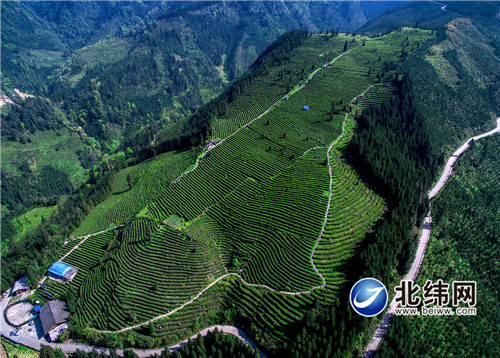 绿色农业大发展 高华康摄良好生态是蜂农的致富依靠 高华康摄大熊猫保护核心区蜂桶寨保护区大水沟保护基地 绿意盎然的景区神木垒 高华康摄游人如织的东拉山大峡谷 高华康摄汉白玉生产高效节能的大板生产线不出远2024-05-20
绿色农业大发展 高华康摄良好生态是蜂农的致富依靠 高华康摄大熊猫保护核心区蜂桶寨保护区大水沟保护基地 绿意盎然的景区神木垒 高华康摄游人如织的东拉山大峡谷 高华康摄汉白玉生产高效节能的大板生产线不出远2024-05-20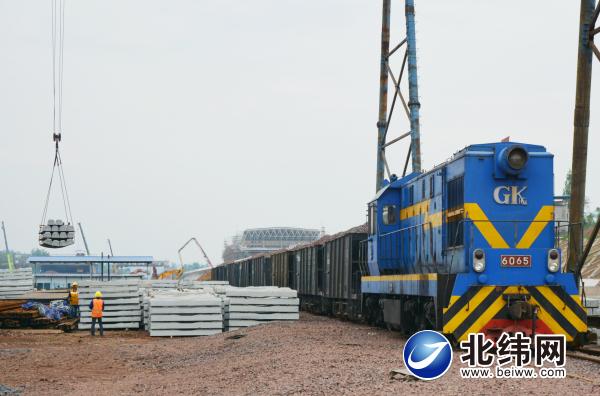 4月下旬成雅铁路完成所有桥梁架设后,工程建设进入人工铺设轨道的攻坚阶段。目前,人工铺轨以每天300米的速度推进,预计在8月底完成所有铺轨任务,保障项目11月底建成投运。为了进一步对工程建设提供保障,建2024-05-20
4月下旬成雅铁路完成所有桥梁架设后,工程建设进入人工铺设轨道的攻坚阶段。目前,人工铺轨以每天300米的速度推进,预计在8月底完成所有铺轨任务,保障项目11月底建成投运。为了进一步对工程建设提供保障,建2024-05-20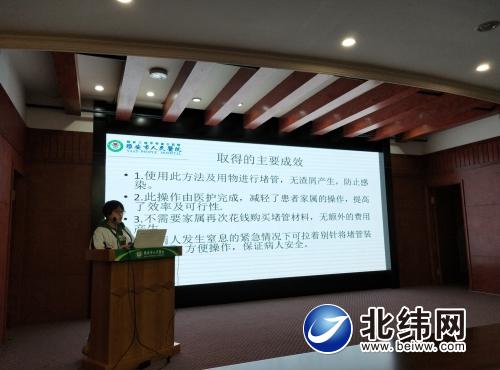 参赛人员介绍项目18个护理创新项目在大赛中进行激烈角逐评委们从选题的科学性、创新内容的先进性、PPT汇报完整性、取得的成效等方面进行现场打分大儿科+护理部啪啪圈手腕带项目摘得桂冠雅安日报/北纬网讯为增2024-05-20
参赛人员介绍项目18个护理创新项目在大赛中进行激烈角逐评委们从选题的科学性、创新内容的先进性、PPT汇报完整性、取得的成效等方面进行现场打分大儿科+护理部啪啪圈手腕带项目摘得桂冠雅安日报/北纬网讯为增2024-05-20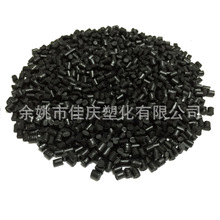 雅安日报/北纬网讯一年一度的年报工作现已开始,我市在2019年12月31日前设立的企业、农民专业合作社、个体户都需按规定进行2019年度年报工作。依照相关规定,每年1月1日至6月30日,企业、个体工商2024-05-20
雅安日报/北纬网讯一年一度的年报工作现已开始,我市在2019年12月31日前设立的企业、农民专业合作社、个体户都需按规定进行2019年度年报工作。依照相关规定,每年1月1日至6月30日,企业、个体工商2024-05-20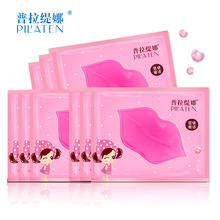 雅安日报/北纬网讯为进一步推进健康雅安建设,6月7日,市卫生计生委负责人及我市卫计部门相关工作人员组成调研组赴宝兴县,开展我市中医药产业发展、健康扶贫等重点工作推进情况调研。此次赴宝兴县开展调研,旨在2024-05-20
雅安日报/北纬网讯为进一步推进健康雅安建设,6月7日,市卫生计生委负责人及我市卫计部门相关工作人员组成调研组赴宝兴县,开展我市中医药产业发展、健康扶贫等重点工作推进情况调研。此次赴宝兴县开展调研,旨在2024-05-20

最新评论